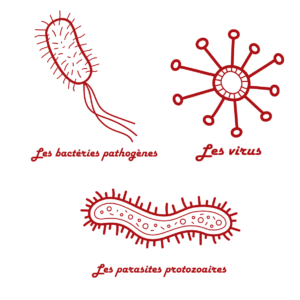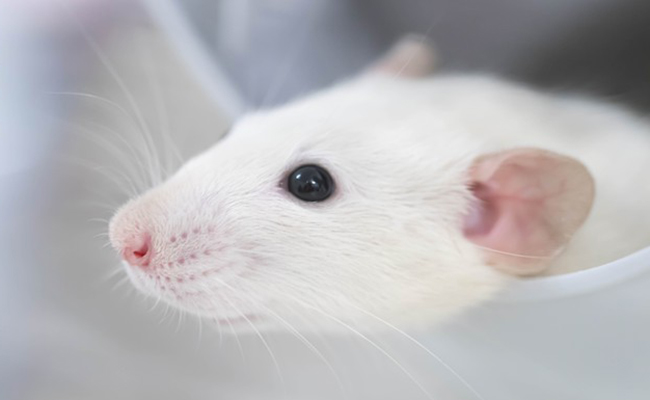Our intestinal flora, the first line of defence for our natural defences.
Every day, research into the human microbiota and probiotics reveals new areas in which our microbial flora plays an essential role. Its many interactions with a number of fundamental mechanisms in our body open up countless possibilities in terms of health, particularly for our immunity. When we talk about microbiota, the gut microbiota is the first thing that comes to mind. This is to be expected, given its major influence on the functioning of this organ. Whether in terms of our digestion, of course, or our natural defences, the role of the intestine is particularly exposed to threats from external pathogens (viruses, bacteria and other parasites). So it’s not surprising that most (around 80%) of our immune system is located in our intestine. This is where the micro-organisms that make up our intestinal flora come into their own…
The aggressors…


…and protectors.

As scientific discoveries have progressed, we have gradually come to realise that most bacteria are harmless and even very useful. These bacteria are known as probiotics.
How probiotics work
Training our immune system
Our flora is formed over the course of our lives, enriched by our environment and shaped by our diet. The importance of these bacteria was highlighted using axenic mice. These mice are bred in such a way as to avoid any contact with outside germs. They enable researchers to observe living organisms that have no microbiota whatsoever. They found that these animals were very different from their normally reared counterparts. Not only did their behaviour differ (hyperactivity, bulimia, obesity, etc.), but their immune systems were also affected. Simple agents that were not very pathogenic and not very dangerous for normal mice became lethal for axenic mice that were much more fragile. These observations illustrate how our immune system learns from the micro-organisms in our flora. Our intestine is a veritable training ground where our immune cells practise recognising microbes from outside our body.
What are axenic mice?

Axenic mice are the only animals protected from any contact with micro-organisms. They enable scientists to study the role of the microbiota by observing the consequences of its absence.
Regulation of inflammation: pro- and anti-inflammatory effects
The balance of our intestinal flora is an essential issue, particularly when it comes to inflammation. Depending on their action, our bacteria can be divided into two groups: those that regulate inflammation and limit its excesses, and those that stimulate the immune system, thus having a pro-inflammatory effect. It is therefore essential to have a good balance between these two categories, as a dysbiosis (imbalance) in our flora will result either in a weakening of our immune resistance, or in the potential appearance of inflammatory disorders that could even lead to the development of chronic inflammatory bowel disease.
Microbiota and inflammation
The mechanism is based on the presence of inflammatory bacterial components, such as lipopolysaccharides (LPS) present on the surface of certain bacteria. These molecules, which have an antigenic structure, provoke an immune reaction that leads to the production of pro-inflammatory mediators (cytokines) by macrophages in the intestine. This triggers local inflammation.

The competition phenomenon
In addition to the importance of the microbiota in the formation of immunity, it has a direct impact on the development of pathogenic micro-organisms. Some probiotics combat colonisation of the digestive tract through competition or the production of bactericidal substances.










